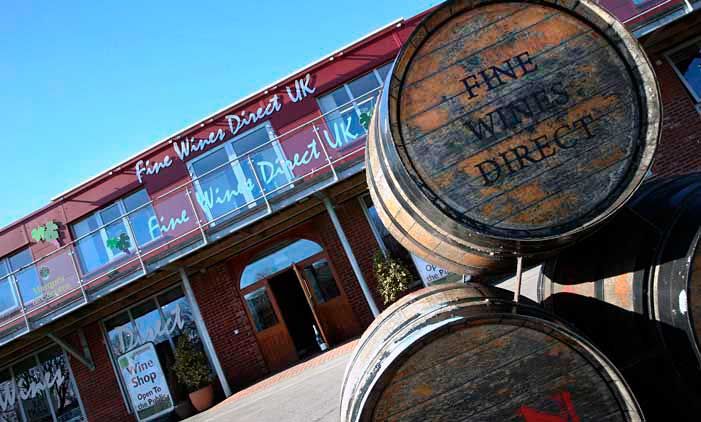“And the company remains confident of its one producer/one country approach, with Martinole highlighting the experience with Escorihuela Gascon, previously with a big London distributor,” writes Keay.
As the trade’s tasting season gets underway, it seems clear that the big importers have used the pandemic as an opportunity to add new agencies to what were already pretty hefty lists. Liberty for example now boasts 142 French producers, 95 Italian and 16 Argentinian; Hallgarten and Novum’s 2021 portfolio boasts of 100 new wines from 30 producers. And so it goes on, with importers clearly of the view that, as customers become more wine-savvy, widening choice is key.
But one importer is taking a very different tack. Cardiff-based Fine Wines Direct UK, which services the on-trade and off-trade from its recently expanded premises in the Welsh capital, has taken the decision to offer its customers one – yes one – producer from each of the regions it imports from. This approach has become even more pronounced as Fine Wines Direct expands its offering into the New World, offering quality wines from Argentina, Chile, Australia, New Zealand, the US and Uruguay.
Founded in 2008 by Nigel O’Sullivan (who started out as a mining electrician before moving into wine) the business had been growing steadily, with Bastien Martinole, a former chef from Bordeaux, joining the team after meeting his wife whilst working at a Welsh vineyard.
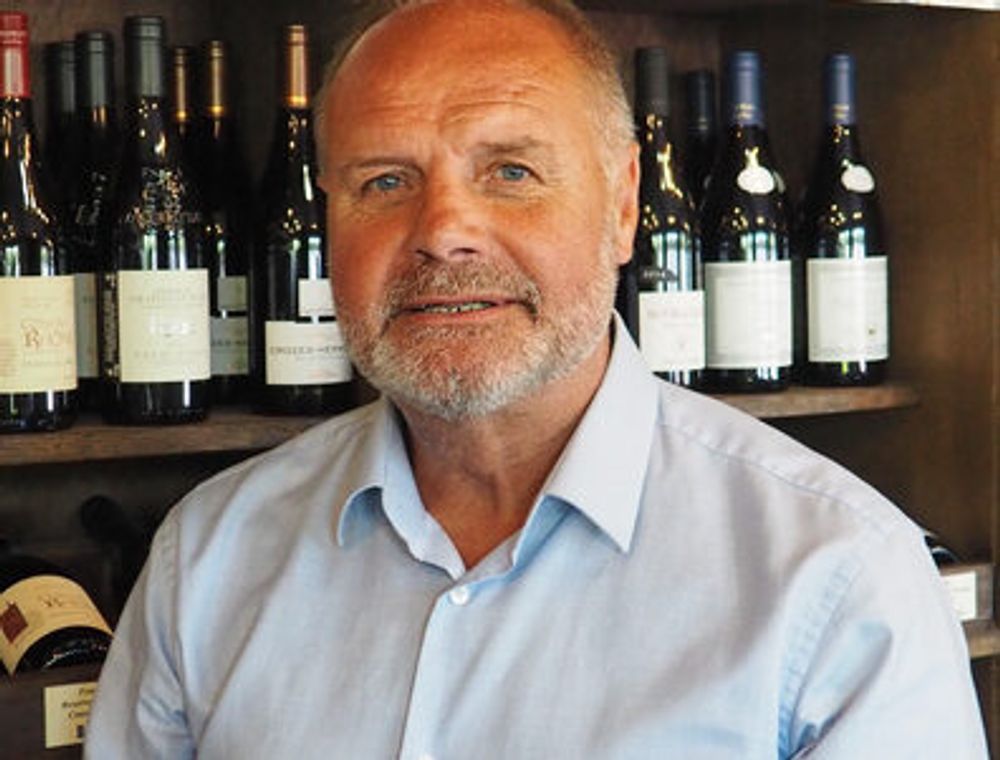
Nigel O’Sullivan: a new strategy for the new trading conditions
However it was the pandemic and Brexit that changed the way the business operated. With the on-trade largely shuttered during the 2020-21 lockdowns, and imports made more difficult thanks to the chaos and extra costs caused by Brexit, Fine Wines Direct massively expanded warehouse capacity and eagerly embraced e-commerce. It also installed a tasting room to encourage consumers to come in and try the wines, with the aim of holding events involving winemakers and producers – all part of the strategy of building up customer loyalty.
“We have had to adapt to the new logistical challenges by buying in bigger quantities. We have also expanded our bonded warehouse which is a huge asset for us. We are now able to buy full containers from faraway producers. This means that we can offer these wines to other customers with competitive prices and good stock availability,” says Martinole.
Bringing in and storing more volume clearly makes sense from the point of view of securing better prices and reducing the need for more frequent imports, but how about the focus on a single producer from each region?
“The producer really gets the value of our efforts to promote their brand, and we avoid internal competition between producers. We also find it focuses our sales team more and reassures the producers that when we are talking about a specific region, it will be their wine we are promoting,” says Martinole, suggesting the strategy gives Fine Wines Direct a more proactive relationship with its producers.
“We are always in regular contact with them and see the promotion of their brand as a common effort, reinforced in an open and mutually supportive relationship,” he says.
So what of the wines?
At a Zoom tasting held in early September – part of the strategy of spreading the word about the producers and their wines – Martinole focused on Fine Wines Direct’s expanded New World portfolio, identifying this as a major growth area.
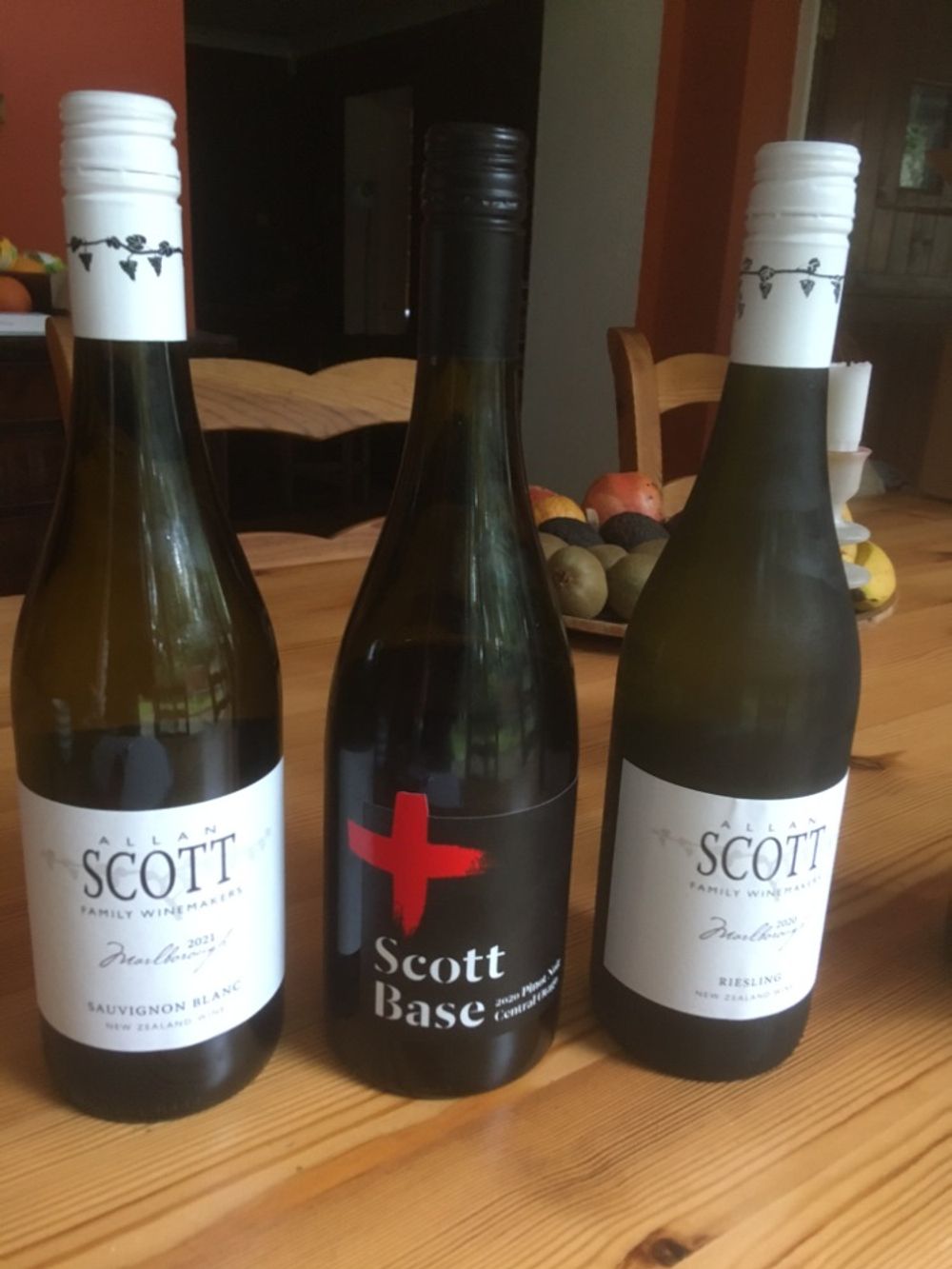
First off, from New Zealand was Allan Scott, with a Sauvignon Blanc, Riesling and Pinot Noir showing off this medium-sized producer’s range. One of New Zealand’s oldest family producers (since 1975) these were classic Kiwi wines (a strong compliment by the way), and included, naturally, the bright, breezy and fresh 2021 Marlborough. More exciting for me was the Allan Scott Riesling Marlborough 2020 (RSP: £12.99), a moreish and well-balanced wine with just enough residual sugar, made from grapes grown in a 40-year-old vineyard. The Scott Base Pinot Noir Central Otago 2018 (£19.99) is an absolute classic with good red and dark fruit, with ten months in oak giving enough heft to the soft tannins.
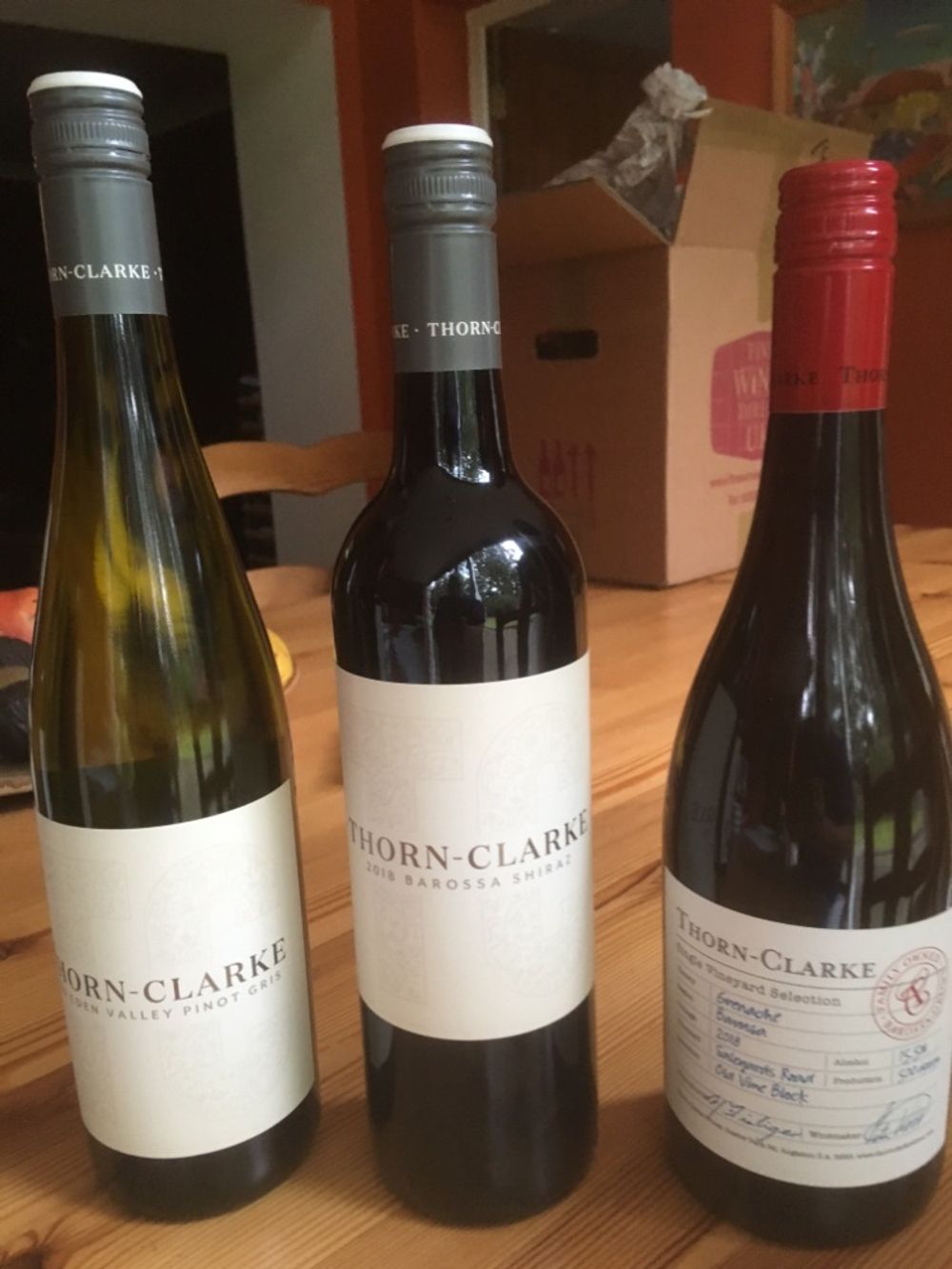
From Australia, family-owned Thorn-Clarke’s Barossa wines were also classic examples of their kind: a typical Shiraz 2018 (£15.99) with 12 months of new oak supported by good fruit and fresh acidity, a hefty (15.5%) almost slightly sweet Single Vineyard Grenache 2018 (£17.99) that shows just how well this once under-appreciated variety is now performing in South Australia. Made from 60 year old vines, this is very good value for a wine that shows great ageing potential. But the real surprise was Thorn Clarke’s Eden Pinot Gris 2020. Made from grapes grown high up in the Barossa ranges, this is a light and easy but also quite complex wine that has clearly benefited from the region’s wide diurnal temperature differences; clocking in at just 11.5% abv this has just enough acidity and residual sugar to produce an almost ethereal taste: really quite special, to my palate at least, and very good value at £11.99.
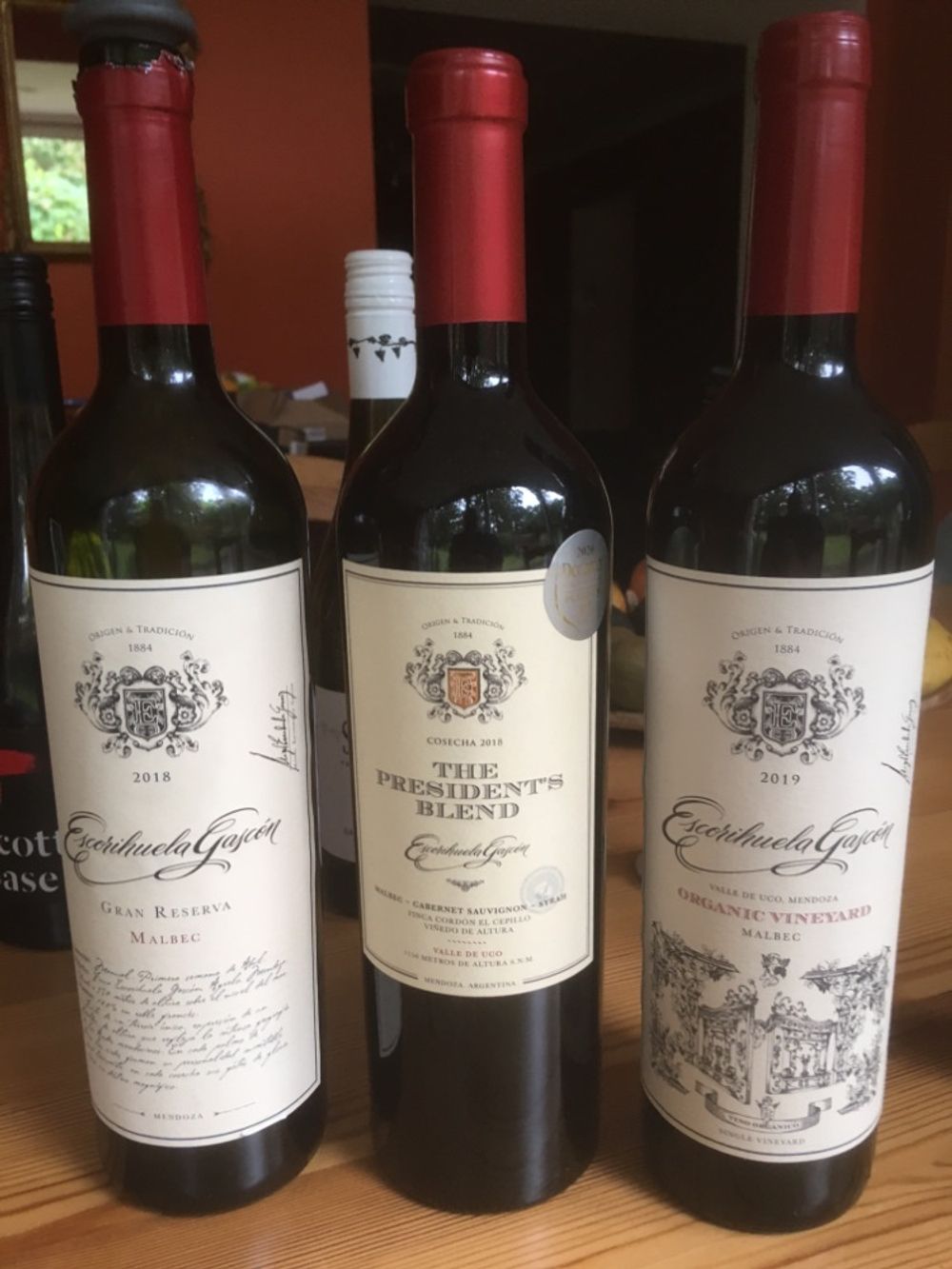
From South America, Argentina’s Escorihuela Gascon showed three very different faces of Malbec from the oldest established producer in Mendoza (1884). The unoaked Escorihuela Gascon Organic 2019 (£18.99) is aged in vats and oak but has no obvious oak profile, the intention being to show the full, proper character of the variety with fruit taken from the producer’s vineyards two hour’s drive south of Mendoza. The more typical tasting Gran Reserva 2018 (£17.99) made with grapes grown in a different vineyard 45 minutes south of Mendoza, has the typical character that Malbec lovers will love, with full-on fruit supported by decent structure and appropriate oaking. At another level altogether, the Escorihuela Gascon President Blend 2018 (£34.99) is a blend of 85% Malbec, 10% Cabernet Sauvignon, and 5% Malbec with grapes taken from both vineyards and oaked separately. Named in honour of President Juan Peron and his wife Evita, who visited the winery in the 1950s and became enamoured of its wines, this is really one for laying down but is already showing well with elegance and power defining the dark berry and cherry fruit.
From neighbouring Uruguay, Bodegas Carrau is one of the newest additions to the Fine Wines Direct range, and is quite a find. The Spanish Catalan Carrau family took over what was one of the oldest wineries in Uruguay, founded in 1887, back in the 1930s and have since restored and built it up, focusing on what has since become the country’s key variety, Tannat, but also white Petit Manseng. Fine Wines Direct has bought in three wines: the entry level Tannat 2018, a full-bodied but well balanced fruit-driven red, with lots of tobacco and spice on the nose and palate; its big brother, the AMAT Tannat 2011, a rich, rounded and smooth expression of the variety that still tastes fresh and accessible, and the Bodegas Carrau Petit Manseng 2018, a rounded, barrel-aged, slightly off-dry wine with lots of character. All very enjoyable and very well-priced.
From what Fine Wines Direct still calls the Old World, its best hand is probably Spain where the importer has used old contacts to gain exclusivity on two very well known producers, Marqués des Cáceres (Rioja) and Pesquera (Ribera del Duero). Amongst highlights from the latter are the Pesquera Tinto Reserva 2010 and also the Tinto Reserva 2017, two very different vintages from this excellent producer but both giving great expression of Pesquera’s wine-making skills.
So what are the plans going forward?
Fine Wines Direct clearly intends to keep a foot in both Old and New World but with a new shift of focus towards premium New World producers, recognising this is where the current growth potential lies. And the company remains confident of its one producer/one country approach, with Martinole highlighting the experience with Escorihuela Gascon, previously with a big London distributor.
“They realised that being part of a portfolio where there are other producers from the same regions might be a conflict for them, so they decided to move to Fine Wines Direct UK,” he says, adding that O’Sullivan sharing Escorihuela Gascon’s Welsh-born UK brand ambassador Richard James’s passion for rugby also helped.
Martinole says he is keen to develop further links with regional partners to get Fine Wines Direct producers across to consumers who may not currently be familiar with them.
“All these wines really deserve to be better known and we will be doing whatever we can to make that happen,” he says.
